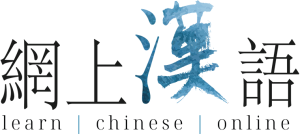Analysis of text n°5
Click to open.
Study the text and pay great attention to the explanations. Write down words and phrases that are new to you. Make a list in English and find the words / expressions in Chinese characters orally and then in writing (Chinese characters).
When you have mastered the new spoken and written vocabulary from English to Chinese, it is good to come back to the text to train the listening again: listen to the text as many times as necessary to understand it without error.
Same principle for writing: you must read the text, aloud ideally, understanding it without a hitch.
谢飞的电话
Xiè Fēi de diànhuà
Xie Fei's phone call
谢飞:喂,李亮吗?
李亮:谁?我是李亮。
谢飞:我是谢飞,下个星期六是王月的生日,我们一起吃饭怎么样?
李亮:在哪儿吃饭?
谢飞:在我家,你打电话叫钱明一起。
Xiè Fēi: Wèi, Lǐ Liàng ma?
Lǐ Liàng: Shéi? Wǒ shì Lǐ Liàng.
Xiè Fēi: Wǒ shì Xiè Fēi, xià gè xīngqīliù shì Wáng Yuè de shēngrì, wǒmen yīqǐ chīfàn zěnmeyàng?
Lǐ Liàng: Zài nǎr chīfàn?
Xiè Fēi: Zài wǒ jiā, nǐ dǎ diànhuà jiào Qián Míng yīqǐ.
Xie Fei: Hello, Li Liang?
Li Liang: Who is this? I'm Li Liang.
Xie Fei: It's Xie Fei. Next Saturday is Wang Yue's birthday, what do you think about having dinner together?
Li Liang: Where would we have dinner?
Xie Fei: At my place. Call Qian Ming to tell him to join us.
- 我们一起吃饭怎么样? In Chinese, you cannot tell if it is lunch or dinner, but in general, festive meals are in the evening. Please note that Chinese people dine quite early, around 6 p.m. They then have an evening snack called 宵夜 xiāoyè.
- 你打电话叫钱明一起。 Quite direct sentence possible between friends. 叫钱明一起 "call Qian Ming together" is a shorthand for saying 叫钱明来跟我们一起吃饭.
李亮:好的,钱明现在和我在一起。
钱明:我买一些水果,怎么样?
谢飞:好,王月喜欢吃水果,我先谢谢你了!
钱明:不客气,大家是朋友。
李亮:我买一些茶杯,怎么样?王月也喜欢喝茶。
谢飞:很好。她会很高兴的。我做中国菜,怎么样?
Lǐ Liàng: Hǎo de, Qián Míng xiànzài hé wǒ zài yīqǐ.
Qián Míng: Wǒ mǎi yīxiē shuǐguǒ, zěnmeyàng?
Xiè Fēi: Hǎo, Wáng Yuè xǐhuān chī shuǐguǒ, wǒ xiān xièxiè nǐ le!
Qián Míng: Bú kèqì, dàjiā shì péngyǒu.
Lǐ Liàng: Wǒ mǎi yī xiē chábēi, zěnmeyàng? Wáng Yuè yě xǐhuān hē chá.
Xiè Fēi: Hěn hǎo. Tā huì hěn gāoxìng de. Wǒ zuò zhōngguó cài, zěnmeyàng?
Li Liang: Okay, Qian Ming is with me right now.
Qian Ming: I'm going to buy some fruit, what do you think?
Xie Fei: OK, Wang Yue likes fruit, thank you in advance!
Qian Ming: Please, we are all friends.
Li Liang: I'm going to buy tea cups, what do you think? Wang Yue also likes to drink tea.
- 我买一些水果 You should know that in Japan, fruits are considered a luxury product, not a commodity. The gift is for Wang Yue who is Japanese. Qian Ming is therefore very considerate and relevant about cultural differences. In China, fruits in general do not have as high a status as in Japan, it is still a common commodity, but Chinese people often offer beautiful, nicely packaged fruits.
- 大家是朋友 "Everyone is a friend". Expression to say that we are among friends and that it is not necessary to be too polite. In China, the closer the relationship, the less politeness has to be done.
- 怎么样? "to be how?" is very often used at the end of a sentence to ask for the opinion or the agreement of the interlocutor.
李亮:好好,我喜欢你做的中国菜,太好吃了!
钱明:我也喜欢。
谢飞:那我们下个星期六见。
李亮:好的,再见。
钱明:下个星期见。
Lǐ Liàng: Hǎo hǎo, wǒ xǐhuān nǐ zuò de zhōngguó cài, tài hǎochī le!
Qián Míng: Wǒ yě xǐhuān.
Xiè fēi: Nà wǒmen xià gè xīngqīliù jiàn.
Lǐ Liàng: Hǎo de, zàijiàn.
Qián Míng: Xià gè xīngqī jiàn.
Li Liang: Yes yes, I like when you cook Chinese, it's so good!
Qian Ming: Me too.
Xie Fei: So see you next Saturday.
Li Liang: OK, bye!
Qian Ming: See you next week.
- 我喜欢你做的中国菜 literally "I like the Chinese food you cook."
- 那我们下个星期六见。: we can use 见 with time words to say that we see each other at that time: 下午见 "see you this afternoon", 明天见 "see you tomorrow", etc.
- 下个 the next one. 上个 the previous one. Example: 上个月 "last month".
